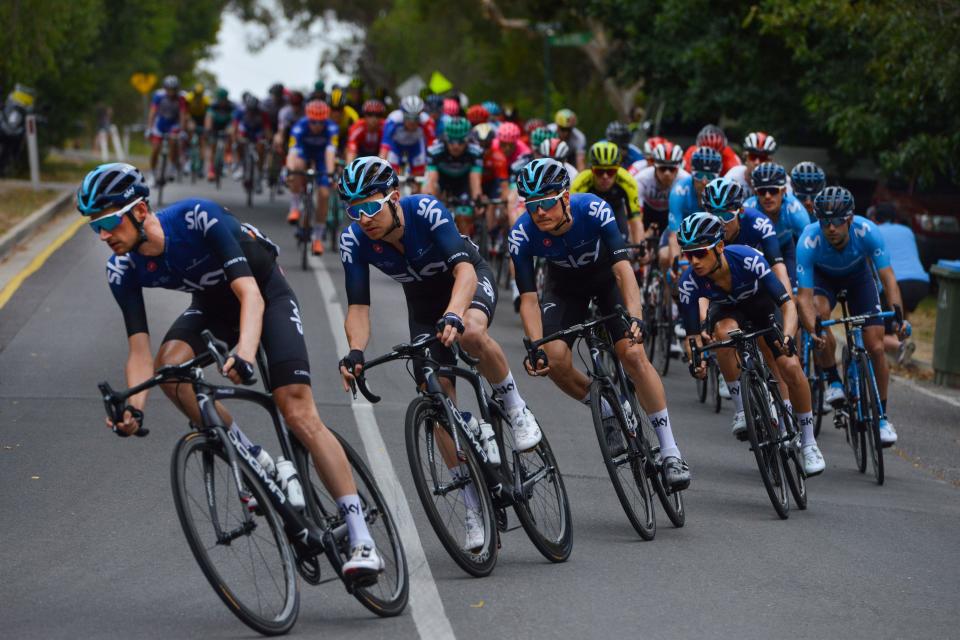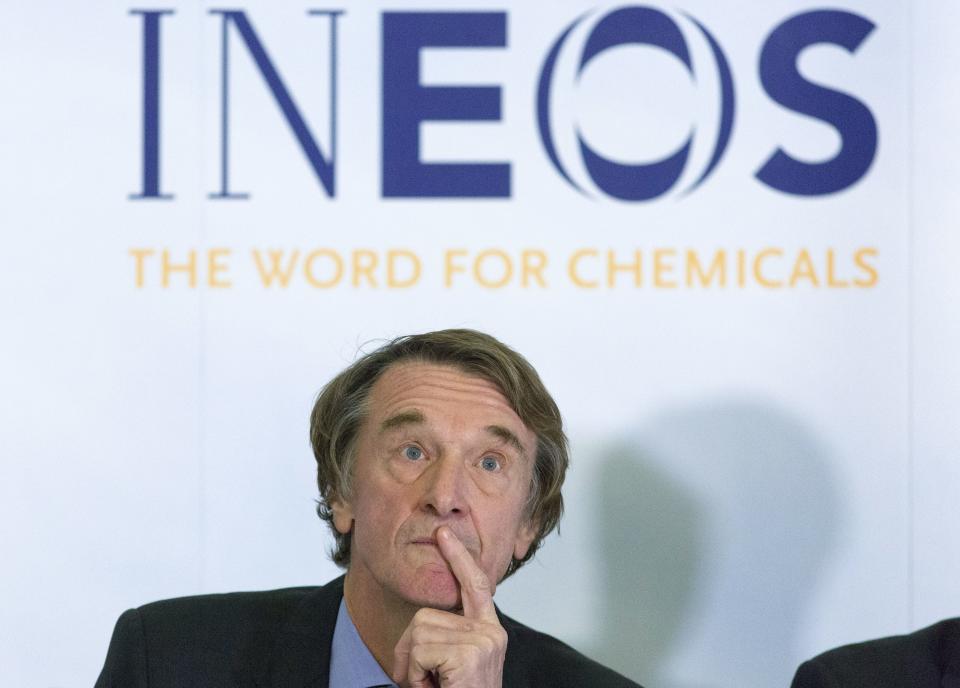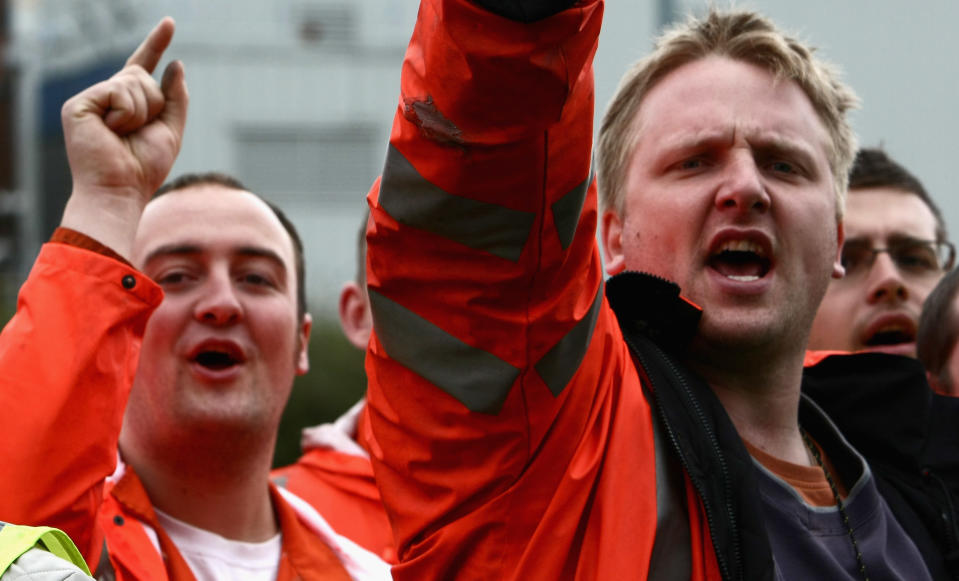Meet Sir Jim Ratcliffe, Britain's richest man who's taking over Team Sky

Who is Jim Ratcliffe?
When cycling group Team Sky this week announced a takeover and rebrand that would see them renamed as Team Ineos, it marked the latest in a string of deals for billionaire industrialist Sir Jim Ratcliffe.
Manchester-born Ratcliffe, 66, founded chemicals company Ineos in 1998 and has grown it into one of the biggest in the world. In the process, the self-made billionaire has become Britain’s richest man.
Until recently, Ratcliffe kept a low profile despite his wealth. However, clashes with unions in Scotland, his support of Brexit, and, controversially, his reported plans to move his wealth to Monaco to avoid billions in tax have all seen his profile rise in recent years.
The sports-mad billionaire has also hit the back pages thanks to investments in an America’s Cup sailing team, a £2bn bid for Chelsea, and the Team Sky deal.
Here’s what you need to know about the new patron of the world’s most dominant cycling team.

‘Britain’s most successful post-war industrialist’
Jim Ratcliffe was born in 1952 and grew up in Failsworth, one of the northern suburbs of Manchester, before moving to Yorkshire where he attended a state grammar school. His father was a joiner and went on to run a factory making lab furniture. His mother was an office worker.
Ratcliffe studied chemical engineering at the University of Birmingham, before working for oil giant Esso. He took a break to do an MBA at the London Business School in the late 1970s and ended up at US private equity group Advent International. It was here that he developed the deal-making skills that would set him up for success.
READ MORE: Jim Ratcliffe’s Team Sky takeover increases ‘inequality’ in cycling
Ratcliffe took the plunge into entrepreneurship relatively late at the age of 40 when he and a partner bought a chemicals business from BP in 1992 and formed a company called Inspec. Advent helped to finance the deal but Ratcliffe also remortgaged his house and pumped his savings into the transaction.
“He certainly seemed strong willed and wanting to get on with things,” said a former analyst who covered Inspec in the earlier 1990s.

Ratcliffe spun Ineos out of Inspec as a private company in 1998 and undertook a string of deals that propelled the company into a chemicals giant. Ineos made 20 deals in its first 10 years, according to the Financial Times. The FT quoted a director at the company as saying its strategy was “to look for orphaned assets in blue chip majors.” The company would then cut costs to drive turnarounds at these often struggling businesses.
The fact that Ineos was private allowed it to take riskier bets than listed competitors who would face greater pressure and shareholder scrutiny.
“Remember, when it’s just three shareholders you can afford to take bolder bets,” a City of London analyst who covers the sector said. “It allows him to have a different time horizon and buy up assets in the low point of the cycle.”
READ MORE: Team Sky announces takeover by Britain’s richest man
Ineos struck its most significant deal in when it bought Innovene from BP for $9bn. It helped propel the company into one of the biggest chemicals businesses in the world.
Today, Ineos makes chemicals involved in everything from packaging production to the synthesis of insulin. It employs 19,000 people globally and has sales of $60bn.
Ratcliffe’s 60% ownership stake in Ineos also made him Britain’s richest man last year, with an estimated net worth of £21bn according to the Sunday Times.
As the founder, chairman, and majority-owner of Ineos, Ratcliffe is credited as the driving force behind its success thanks to his swashbuckling deal-making skills and no-nonsense problem solving skills. He has been called “Britain’s most successful post-war industrialist” by the Sunday Times and he was knighted last year for services to business.
A bid for Chelsea and millions for rowing
As Ratcliffe’s profile has risen in recent years, so has his spending. While he has also laid out huge sums in the corporate world, Ratcliffe has increasingly spent his personal fortune on projects and assets that interest him.
Many relate to sport and outdoor activities. “I get quite a kick out of doing physical stuff,” Ratcliffe told the Sunday Times in 2017.
Ratcliffe celebrated his 60th birthday by running a 90km uphill marathon in South Africa, learning to kitesurf, and motorcycling across Africa, according to the FT. He has taken part in expeditions to both north and south poles.

A lifelong Manchester United fan, Ratcliffe bought Swiss football team Lausanne-Sport in 2017. The same year he also bought leather jacket maker Belstaff, reflecting his passion for motorcycling. Then there is Projekt Grenadier, Ratcliffe’s plan to build a successor to the Land Rover Defender which Jaguar Land Rover announced in 2016 was going out of production.
Last year he invested £110m into Olympic sailor Sir Ben Ainslie’s America’s Cup team. The deal was reportedly brokered over a gin and tonic between the two men.
Ratcliffe reportedly also tried to buy Chelsea Football Club last year for £2bn but his bid was rejected. There is speculation that Ratcliffe, a long-time Chelsea season ticket holder who has a house in the area, will return with a second bid after sealing the Team Sky deal.
Away from sports, Ratcliffe also owns two super yachts both named after the English county of Hampshire where he has a house. The £130m Hampshire II boasts a helipad that can be converted into a tennis court or football pitch.
Battles with unions and moving to Monaco
Despite a knighthood, Ratcliffe and Ineos have also enjoyed their fair share of controversy.
An industrial dispute between Ineos management and workers at Scottish oil refinery Grangemouth was widely covered in 2013. Ineos threatened to close part of the plant unless workers accepted a worse deal on pay and pensions. An MP accused the company of “hold[ing] the country to ransom” and the union Unite dubbed Ratcliffe “Dr No” for his refusal to compromise. Ineos eventually won out.
Ratcliffe is also a major voice calling for fracking, the controversial oil extraction technique, in the UK. This has created clashes with environmental groups.

Perhaps the biggest controversy has been around Ratcliffe’s tax affairs. The Sunday Times revealed earlier this year that Ratcliffe was planning to move to Monaco to avoid an estimated £4bn in UK tax. Ineos relocated its headquarters from the UK to Switzerland between 2010 and 2016 to save an estimated £100m a year in corporation tax as it faced a financial crisis-linked cash crunch.
Ratcliffe’s personal tax plans were condemned as “sticking two fingers up to the country” by Labour MP Meg Hillier and criticised as “deeply cynical” by Liberal Democrat leader Vince Cable.
The investments in Team Sky and the America’s Cup team have also drawn criticism from environmental groups who claim Ratcliffe is simply trying to “greenwash” Ineos’ huge carbon dioxide output.
“Taking over Team Sky is the latest blatant attempt at greenwashing by Ineos,” read a statement from Tony Boswell, a fossil free campaigner at Friends of the Earth.
“This is also a company that wants to frack large swathes of northern England and the East Midlands. Ineos has also been lobbying hard for the government to relax safety rules so fracking companies can trigger larger earthquakes before having to down tools.”
One of Britain’s few Brexit-supporting business people
Ratcliffe has been described as “secretive” and “reclusive” in past profiles but has been increasingly prominent speaking out in recent years.
Earlier this year he said the government’s fracking rules were “playing politics with the future of the country” and risked an energy crisis.

He has also spoken out about his support for Brexit, telling the Sunday Times he voted to leave.
“We had always said we would make things work either in or out of the EU,” Ratcliffe said in 2016. “As a business, INEOS supported the common market, but not a United States of Europe.”
It makes Ratcliffe a relative minority among business people, most of whom oppose Brexit. Other prominent backers include Sir James Dyson and JD Wetherspoon boss Tim Martin.
Ratcliffe has two sons with his first wife, Amanda Townson, and one daughter with his second wife, Alicia.

 Yahoo Finance
Yahoo Finance 